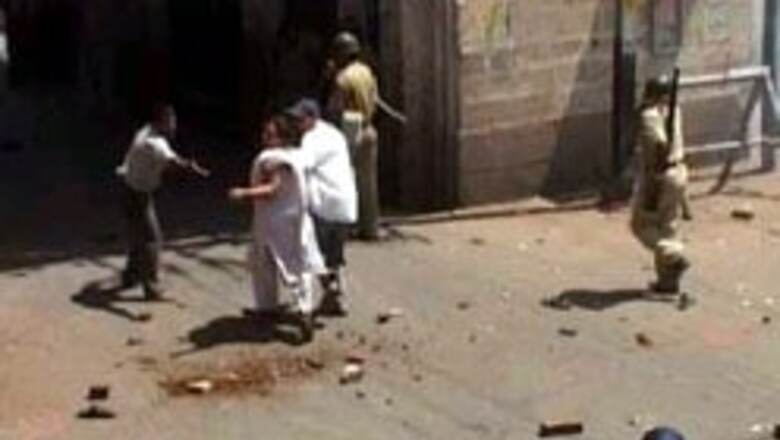
views
New Delhi: The demolition of the dargah in Vadodara started a riot last week and brought to light the fact that India doesn't have a policy on the relocation of religious sites that are seen as encroachments on footpaths and roads.
A temple on the pedestrian walkway, or a dargah on the side of the road, encroaching on some street space is common sights in urban centres.
And even as the law broadly defines these as encroachments, for civic bodies these sites remain tricky areas because neither the civic bodies nor the Archaeological Survey of India (ASI) has a policy on religious encroachments. Not even a possible relocation.
"The ASI has no role to play in this situation. We have had cases of relocating temples when these fell in areas that were getting submerged but those were ASI notified heritage properties and only after these cases were referred to us. ASI does not relocate religious sites on its own," says C Babu Rajeev, DG, ASI.
While relocation of heritage sites is a common practice abroad, in India the option is highly underutilised.
Experts believe that relocation with the involvement of faithfuls could be a possible solution but it lacks the backing of a well-defined policy.
"The simple reason why relocation is not practised in India is because there is no specific policy pertaining to religious sites. While in some cases a relocation can be done easily, in others the community needs to be involved," says KT Ravindran, urban planner and heritage expert.
The urban development ministry hasn’t yet thought about a law on the relocation of religious sites and says it is still to look into the area.


















Comments
0 comment